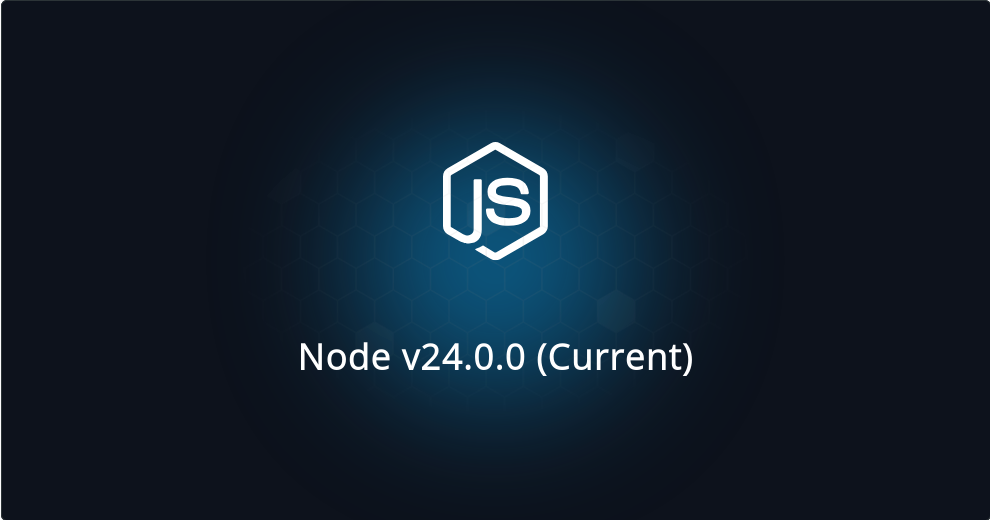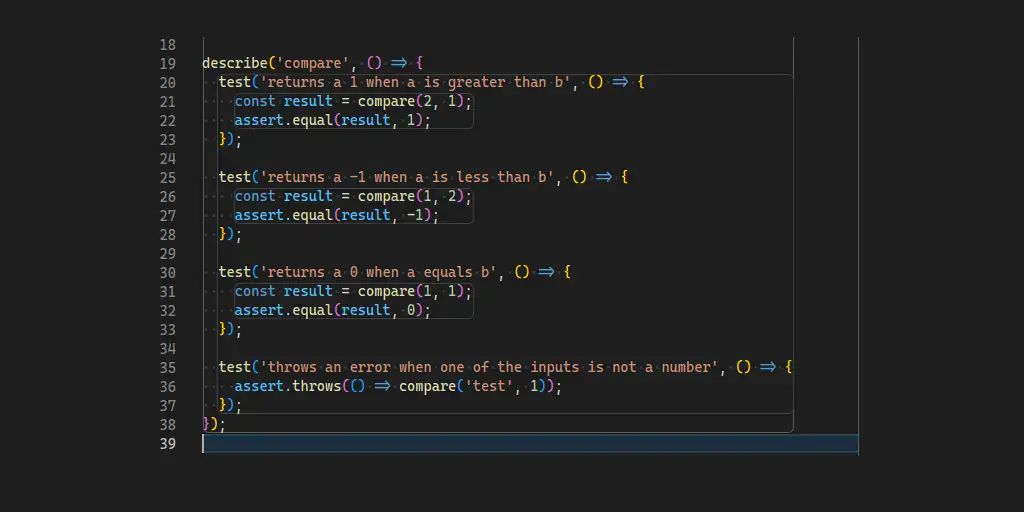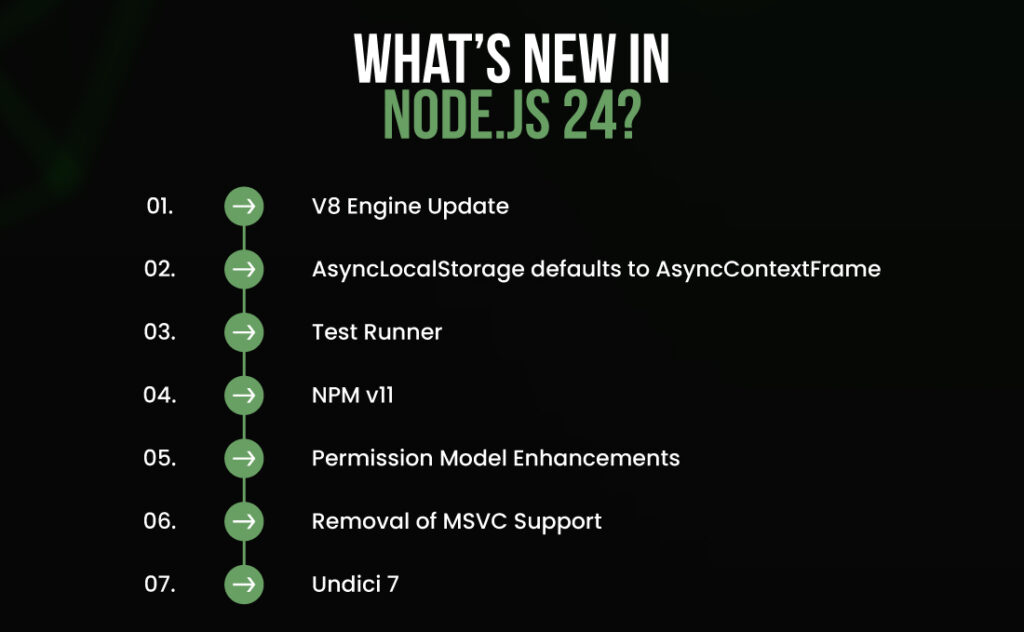Node.js 24 has officially landed, delivering a robust set of upgrades aimed at improving performance, developer experience, and alignment with the latest JavaScript standards. Whether you’re deep in asynchronous workflows or building web applications, this release brings meaningful improvements worth paying attention to.
V8 Engine Upgraded to 13.6

At the heart of Node.js 24 is V8 version 13.6, the same JavaScript engine powering Google Chrome. This update introduces several new language features that enhance performance and developer ergonomics:
RegExp.escape(): Simplifies and secures the process of escaping special characters in regular expressions.Float16Array: Adds support for 16-bit floating point arrays, useful for memory-constrained applications like machine learning or graphics.Atomics.pause(): Provides finer control in multi-threaded environments by allowing workers to pause execution.WebAssembly Memory64: Introduces 64-bit memory support for WebAssembly, enabling more complex and powerful use cases.using awaitfor Explicit Resource Management: Helps manage resources such as files and sockets more safely by ensuring automatic cleanup.Error.isError(): A utility to reliably determine whether a value is an Error object—useful for robust error handling.
These additions bring Node.js closer to the browser-native JavaScript experience, reducing friction and making modern syntax more accessible.
Evolving Permission Model and Native URLPattern Support

Node.js 24 promotes the previously experimental Permission Model to broader adoption. The flag has changed from --experimental-permission to simply --permission, signaling growing stability.
This model allows developers to explicitly control what their applications can access—whether it’s file systems, environment variables, or network resources—adding a layer of built-in security.
Also now globally available is the URLPattern API, which allows developers to match and parse URL patterns directly—without requiring an import. This streamlines route handling and URL parsing with cleaner syntax and greater flexibility.
Built-In Test Runner Gets Smarter

Node’s native test runner sees a key usability improvement: it now automatically waits for subtests to finish. Previously, developers had to manually await each subtest to prevent premature test completion.
This change reduces boilerplate and helps avoid subtle bugs, making the built-in test framework a more viable alternative to third-party libraries.
HTTP Client and npm Updates

Node.js 24 includes Undici 7.0.0, the modern, high-performance HTTP client used by Node’s internal fetch() implementation. This update improves compliance with HTTP standards and enhances performance in applications that depend on frequent HTTP requests.
Also bundled is npm v11, which brings:
- Faster install times
- Improved security checks
- Better compatibility with the modern Node.js ecosystem
- A streamlined
npm initflow with improved prompts and package structure - Expanded behavior for
--ignore-scripts, now applying to all lifecycle events - Removal of legacy features like
npm hookand fallback behavior for failed audit requests
⚠️ Note: npm now requires Node.js
^20.17.0 || >=22.9.0.
Deprecated and Removed Features
As part of its ongoing modernization, Node.js 24 also continues deprecating legacy features:
url.parse()is being phased out in favor of the WHATWG-compliantURLAPI.- Deprecated APIs include
SlowBuffer,tls.createSecurePair, and legacy file system constants likefs.F_OK.
If you maintain older codebases, now is a good time to review and update any outdated patterns.
Conclusion: A Meaningful Step Forward
Node.js 24 isn’t just a routine update—it’s a meaningful evolution that improves performance, enhances security, and brings the runtime further in line with modern JavaScript. From V8 enhancements to smarter testing and stricter permissions, this release makes everyday development smoother and more secure.
Whether you’re working in enterprise environments or building side projects, Node.js 24 offers real value—helping you write faster, safer, and more future-proof JavaScript.












Comments are closed